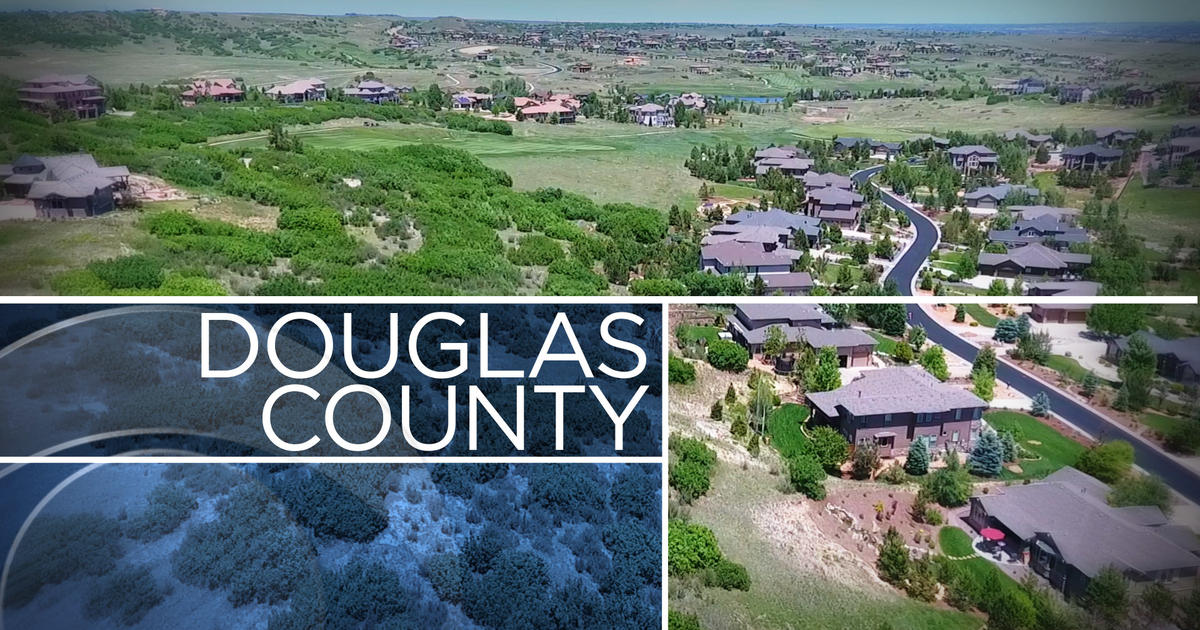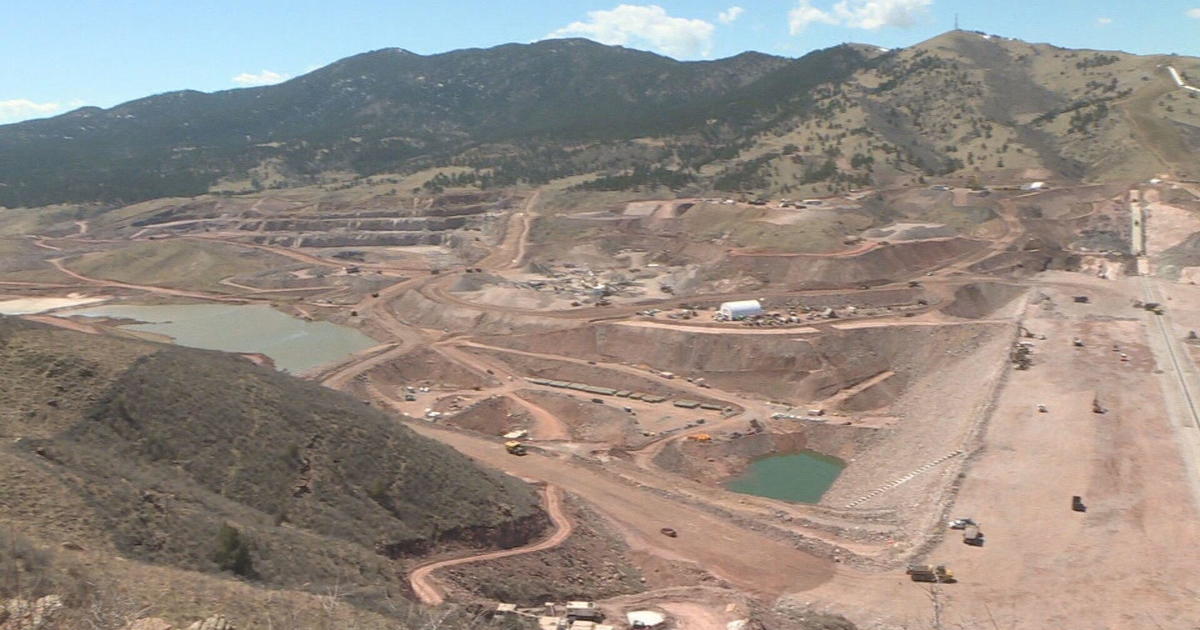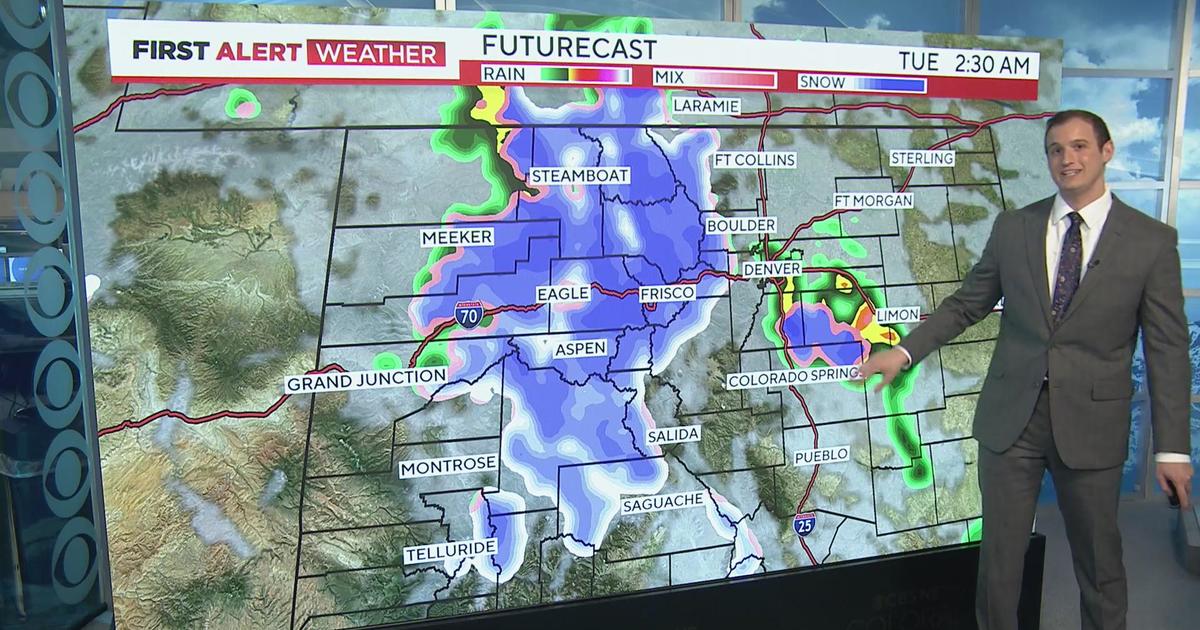New Blood Turns Colorado To Political Battleground
DENVER (AP) - Not too long ago Colorado was political flyover country, known for skiing and football - and being a reliable vote for the Republican presidential candidate.
In the past three elections, it's become a focus of national politics. This year, Colorado is a hotly contested battleground in the race between Democratic President Barack Obama and Republican Mitt Romney, and it hosts the first debate between them Wednesday night in Denver, a city that is the third-busiest political ad market in the country.
In 2010, the U.S. Senate campaign in Colorado was the most expensive of that cycle. And in 2008, Obama put the state firmly on the political map by accepting his party's presidential nomination at the Democratic National Convention here.
So what has changed over the years? People like Kelly Kuehl moved here.
Kuehl relocated to Denver for a job as a speech therapist after getting her master's degree in speech language pathology in Minnesota in 2005. She also came here to enjoy the mountains, skiing and outdoor activities that have lured an increasing number of college graduates over the past few decades. Once a supporter of President George W. Bush, she's become a solid Democratic vote.
"The issues that I feel strongly about are pretty central to the Democratic Party," she said, citing health care, same-sex marriage and the environment. She added that she's been pleasantly surprised at the diversity of political views in her adopted state.
"You have people from all over the world who live here," she said. "In Minnesota, it's just people from Minnesota and they just kind of stay."
Mark Muro, director of policy for the Metropolitan Policy Program at the Brookings Institution, notes that the state's population has risen sharply in the past couple of decades, creating a chain of urban and suburban neighborhoods at the doorstep of the Rocky Mountains. He said that large urban areas are increasingly voting Democratic, and that is another factor in the political transformation of Colorado - and, potentially, some of its Western neighbors.
"Some of these fundamental demographic, spatial and social trends are dislodging the hard red backdrop that used to characterize the Mountain West," Muro said, using the color shorthand for conservative or Republican. "These are currents that are going to put more places up for grabs."
Like many Western states, Colorado has a weak party system and lingering distrust of partisan politics.
"Colorado has always had this kind of Western spirit, and we've always been more focused on who the person is rather than the party," said John Hickenlooper, the state's popular Democratic governor.
With the exception of 1992, when Bill Clinton captured a plurality of voters here during his first campaign, the Republican presidential candidate had won Colorado in every election from 1968 on. But by the time Obama was nominated here in 2008 - and won the state by nine points - the groundwork had already been laid for a major shift.
The state has been evenly split between Democrats, Republicans and independent voters for a generation. But in 1990 only 27 percent of its population had bachelor's degrees or higher. By 2008 that share had risen to 36 percent.
Meanwhile, the Hispanic population more than doubled.
Republicans had a lock on the state early in the past decade, but the party's catering to its socially conservative base may have alienated many of Colorado's less ideological swing voters.
Democrats, aided by deep-pocketed donors, in 2004 recaptured the state Legislature for the first time in nearly 40 years with a slate of technocratic candidates. Then they took the governorship and both U.S. Senate seats. And celebrated Obama's resounding win.
Perhaps even more significant was the 2010 race by Sen. Michael Bennet against a tea party favorite, Ken Buck. Bennet, who'd been appointed just a year earlier, survived the tea party wave by assailing Buck as too extreme on women's issues and immigration. He eked out a narrow win with strong support from women and Hispanics. Obama's re-election campaign has explicitly adopted the Bennet model with its overt appeals to college-educated women on the issue of abortion and to Hispanics on immigration.
"The Colorado model is to target ... the electorate of the ascendant - Hispanics, young voters, college graduates," said Floyd Ciruli, an independent pollster here.
Still, the state is not firmly in the Democrats' column.
Polls here have shown Obama's lead may be smaller than in other swing states. Democrats control the state Senate and Republicans the General Assembly. Hickenlooper says each party expects to win the other chamber - and it's possible.
Despite its right-tilting reputation, Colorado has long harbored an independent streak. It's been a more politically diverse state than the stereotypes.
Dick Wadhams, a veteran Republican operative and former chairman of the state party, notes that Colorado often has elected Democratic governors and U.S. senators - sometimes at the same time that it voted Republicans into other state offices. "I don't think either party will ever have a permanent hold on this state," Wadhams said.
And Walt Klein, a veteran GOP consultant and ad man, says no one should expect Colorado politics to become predictable.
"The pendulum swings back and forth," he said, "and will continue to do so."
- By NICHOLAS RICCARDI, Associated Press
(© Copyright 2012 The Associated Press. All Rights Reserved. This material may not be published, broadcast, rewritten or redistributed.)



